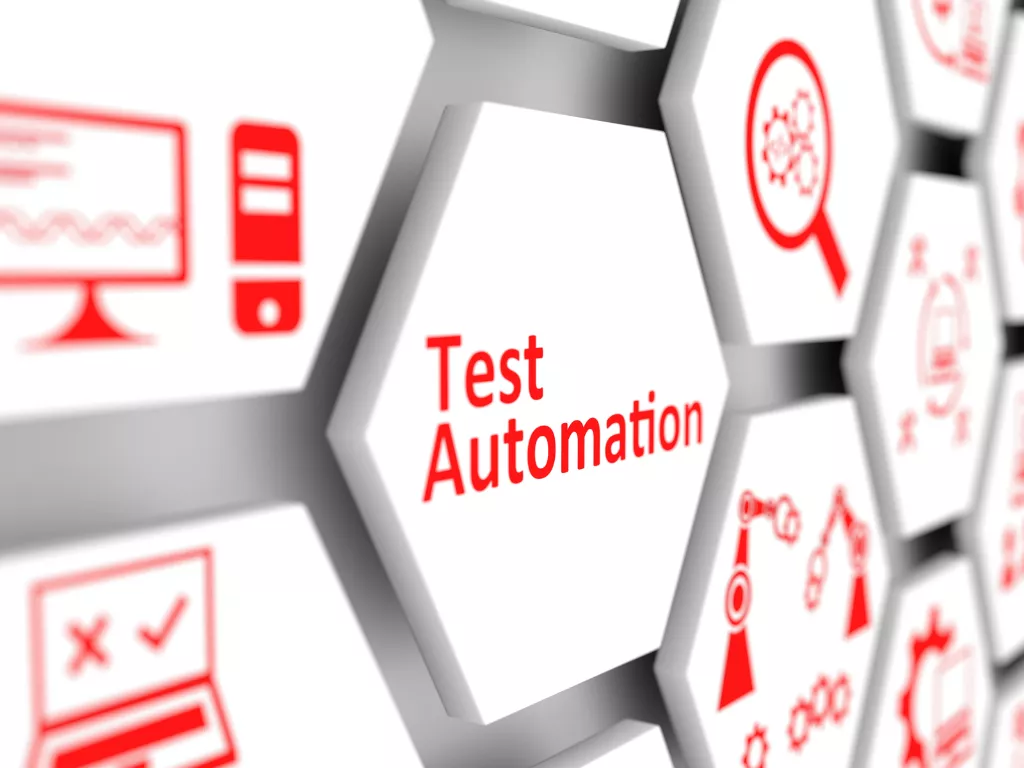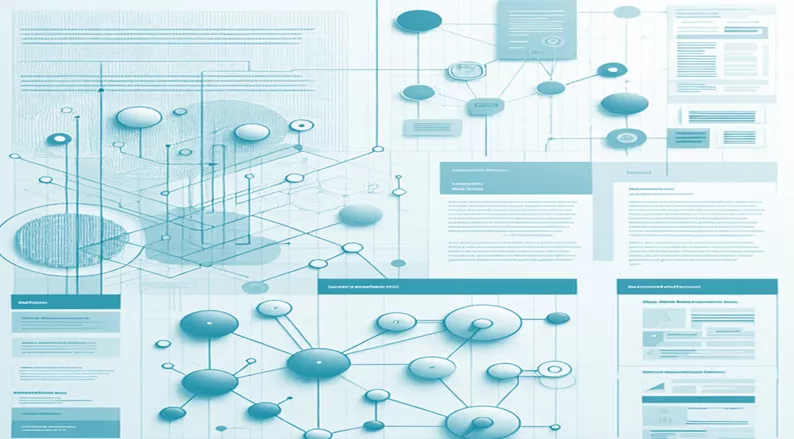8 Reasons why Automation Testing Is popular amongst Healthcare ISVs
The era of digitization and technology has undoubtedly transformed healthcare delivery and patient care. The global healthcare IT market was estimated at US$ 282.99 billion in 2021 and is expected to reach around US$ 857.58 billion by 2030. And the growth predicted is remarkable - a CAGR (Compound Annual Growth Rate) of 13.1% from 2021 to 2030. (Precedence Research)

The advent of numerous start-ups in healthcare, increasing the health literacy of the population, and the awareness of the community towards preventive care, are some of the factors triggering healthcare and life sciences organizations to get products faster to market. Even though the need to market products faster is vital, integrating security measures are crucial when developing the solutions.
As the industry deals with sensitive and confidential patient data, security, and the safety of human lives, health organizations have committed to prioritizing patient’s health. Products are being innovated towards patient safety, and security, to prevent and reduce risks. The quality checks and security loopholes need to be managed not only at the end of the developed product but also during the entire product development process.
Healthcare ISVs:
Healthcare Independent Software Vendors (ISVs) build software products for managing and operating the functioning of healthcare organizations. The ISVs work to deliver products that operate in heavily regulated healthcare environments.
Some of the unique challenges faced by healthcare technology companies
- Apply and leverage the newest trends to stay ahead of the competition.
- Deliver high-quality applications at speed without compromising quality and compliance.
- Avoid post-deployment glitches and ensure enhanced user experience.
- Prevent unauthorized login into the app/software that may cause data theft.
- Deal with high-volume data processing.
- Manage redundant tasks in healthcare apps.
Automation Testing v/s Manual Testing:
Manual testing, which is a method to test the precise functioning of a feature or product by humans, is now being replaced by automation testing. Automation testing can run your tests on software solutions without human intervention. Manual testing is slow, expensive, and error prone. It can be a barrier to releasing software faster. Manual testing comprises a tester following a set of processes to check the working of the software. On the other hand, automation testing consists of testing frameworks allowing modules or the entire software to be tested automatically 24/7. With this, releasing new features, while constantly re-testing the application is easier with lesser manual testing efforts.
To detect errors early in the development cycle and ensure faster product release, organizations are keen to incorporate test automation in the development cycle. The repetitive tests, continuous test monitoring, and feedback can ensure software accuracy and stability through each step in the development cycle, where requirements are continuously changing. By leveraging the power of automation testing, companies can achieve maximum accuracy to deliver precise and secure healthcare to patients.
Why are Healthcare companies interested in automation testing?
1. Data-Driven Testing
Healthcare apps and medical devices generate large volumes of data related to patients and health conditions. Healthcare is a data-intensive industry, and a wealth of data can be used to improve the quality of patient care. Accuracy of data transfer/data storage from devices/health records to databases holds high importance in deciding the right therapy and building good products.
Manual testing is a time-consuming process when executing tests on large data sets. Automation frameworks enable the execution of tests on large data sets. By using data to guide testing, healthcare organizations can ensure that their tests are more accurate and efficient.
2. Verification across the platforms
Automation testing ensures guaranteed results on a variety of platforms, allowing manufacturers to confidently introduce healthcare products to the market. Applications can be tested using automation scripts across a wide range of platforms, devices, and browsers simultaneously. Test automation also has multi-system, multi-lingual capability of testing.
3. Achieving Compliance
Healthcare software, health technology products, and apps must comply with standards such as HIPAA (Health Insurance Portability and Accountability), FDA, and ISO to ensure patient data safety and product security. Compliance is important because it ensures that the software meets regulatory standards. Automation testing uses frameworks to execute a test to check different case scenarios on data to protect information across channels, features, and functionality. Automation testing is a great way to keep your software up-to-date and compliant with all the latest healthcare standards.
4. Ensure authentic and verified reports
Healthcare applications and life sciences products generate patient reports in different formats. These reports and diagnostics generated can be in HTML/PDF/CSV and/or other text formats The accuracy of reports can be automatically tested and verified with functional testing tools. With suitable testing tools, these reports of various formats can be verified, and issues can be resolved.
5. Support IoT (Internet of Things) and Medical Device Compatibility and Interoperability
Health digitization has connected devices with humans. Interoperability of medical devices with different systems helps in the smooth flow of data to deliver a rich user experience. Automation testing records and repeats tests for medical device compatibility testing. A thorough QA environment ensures that every facet and element of the device/application is tested for interoperability. Integration of medical systems is important to ensure software works with other systems. Test automation enables detection of bottlenecks and bugs easier and faster, ensuring a more accurate integration between core medical software and smart devices.
6. Security
Data security and privacy are the topmost priority for healthcare organizations. Security is a major challenge because of the sensitive nature of the data. Patients expect their sensitive medical information remain intact, private, and secure. Automation testing scripts are written to ensure the prevention of unsolicited logins by validating user data. Along with patient data safety, it prevents malware/cyber-attacks ensuring software security. Penetration testing ensures healthcare organizations safeguard against data breaches and warrants the system hack-proof.
7. Performing Repetitive Tests multiple times is easier
Healthcare applications have multiple users, and these users repetitively perform the same action. Automation testing is the right choice when there is a requirement to run tests repeatedly. Automation allows running test cases periodically as and when needed to check the accuracy of the application's different processes. Executing the same actions with different inputs is much easier and faster with test automation.
8. Testing on new features faster
Competition amongst healthcare companies is intense as they want to add novel features to the app frequently. Automated test cases verify existing features in addition to the newly written code for additional features at a much quicker pace.
Healthcare IT companies are innovating and launching more patient-centric products. Products need thorough testing to balance quality with time-to-market ambitions. A well-drafted test automation strategy can help healthcare companies thrive in delivering quality products on time.
Factors to consider while developing an automation testing strategy:
- Differentiating between the tests that need automation and the tests best suitable for manual testing
- Automation requirements for repetitive, tedious actions
- Number of business-critical features and the frequency to run tests around these features
- Types of automation test needed:
- Unit test: Ensure each function works well. Run to test new code.
- Functional test: To check proper system functioning
- Regression test: To assess if the new code works seamlessly with the existing app, and check the reappearance of old bugs
- Smoke test: Examines the functionality of an application
- Performance test: This is to ensure your backend can function effectively under the load anticipated by your users. Includes load tests, stress tests, and responsiveness tests.
- Security test: Prevent vulnerabilities in an application by scanning the app with automation tools. The automation scripts analyze software for security loopholes and fixes them.
Healthcare products, apps, medical devices, and connected IoT devices are welcomed by users when they are efficient, scalable, highly secure, and capable of managing large volumes of data with great user experience. They need compliances and regulatory standards to be followed at every step of development. Test automation can verify your application exhaustively for its speedy functioning. To enjoy the benefits of test automation, healthcare companies need a team with a perfect blend of domain SMEs and test engineers. To transform your innovative ideas into a successful health/ medical product, a well-defined automation testing methodology can ensure that software is safe and effective for human use.
The number of cyber-attacks is haunting healthcare and life sciences organizations. To efficiently identify security loopholes, Decos offers expertise in software testing for the healthcare domain.
Our team of experienced test engineers will help leverage the benefits of test automation in healthcare followed by the industry best practices.
Not only do we deliver applications without security vulnerabilities, but we also assist in covering industry standards and ensure that all healthcare regulatory compliances are met.
This blog is written by Divya Ghole - Content Marketer, at Decos. She is content marketing strategist specialized in creating content for marketing collaterals contributing to successful marketing campaigns.
Decos is a cutting-edge technology services partner ready to meet your software needs in the medical domain. If you have a question on one of our projects or would like advice on your project or a POC, just contact Devesh Agarwal. We’d love to get in touch with you!

Discover more

Transforming Instructions for Use (IFU) with AI: Enhancing Technical Documentation

Reducing Latency in Real-Time Medical Monitoring to enhance speed, accuracy and patient safety.

